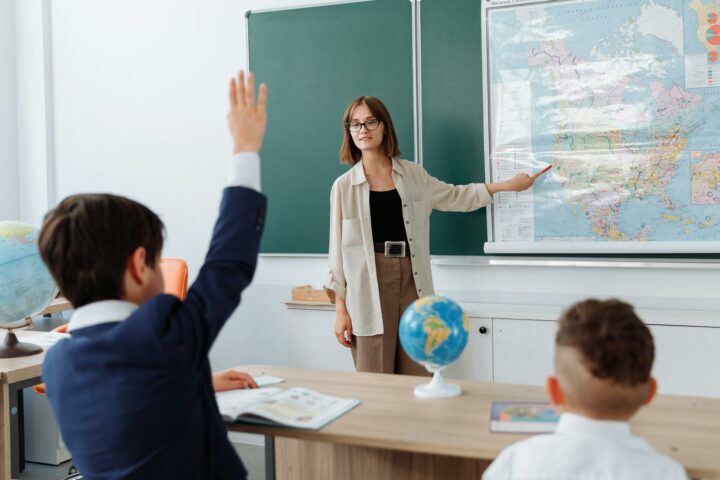Who is IQM?
IQM is the only national inclusion award in the UK. For over 20 years and in over 20 countries, schools, MATs and Local Authorities use the Inclusion Quality Mark to recognise exemplary inclusive practice.
Get in touch for your FREE school information pack today.
Recruitment, Staff Retention and Psychological Safety
February 15, 2024
IQM’s Head of Education Kevin O’Neill looks at why schools should prioritise an inclusive culture of psychological safety to help retain staff.

Mounting Crisis in Recruitment and Retention
While schools have now weathered the coronavirus storm and returned to a more recognisable normal, more entrenched problems remain. For years, schools have faced a mounting crisis in teacher recruitment and retention that still shows few signs of improvement.
The recruitment and retention of teachers across the UK has been a challenge for some time. More than ever teachers are leaving the profession and statistics show that there are fewer new entrants to the profession. Key subject areas including sciences, maths and computing continue to be hard to recruit for, as headteachers warn they have reached crisis point.
Secondary heads say they have become used to adverts for maths, science, computer science and design technology teachers failing to attract any suitable applicants. But many have been shocked to find that it is now a similar battle to find teachers for English – traditionally a subject that buoyed recruitment numbers.

They warn that if the government does not tackle low pay, workload and the pressure of inspections by Ofsted, growing teacher shortages will mean spiralling class sizes and children falling behind because they do not have the right specialist subject knowledge.
Low Morale
It has been long argued that both this government and a potential new administration in the latter half of 2024 need to focus on the issues that newly qualified teachers are saying are making them leave the profession — that includes escalating workloads and low morale.
Many school leaders frustrated at what they perceive to be a lack of political will to tackle the problem have looked across the globe for strategies that will attract talent and more importantly, keep them in our schools. Amy Edmondson is a Harvard Business School Professor. She advocates that schools should prioritise an inclusive culture of psychological safety. That the schools which do this well are masters at taking care of teachers’ mental health and wellbeing.
Psychological safety at work means creating an environment where people are trusted and feel safe. All staff in the school, regardless of experience or position feel that they can be honest with managers and colleagues alike. They feel able to speak up when they need to (something that paradoxically figures often as a ‘reason for leaving’ in exit interviews). All stakeholders feel that they have the freedom and security to try new things and make mistakes. This is huge – we are all learners.
Edmondson argues that when schools join the dots of psychological safety then staff feel safe enough to be creative and take risks. It is the retention of these hearts and minds that are so vital to future proofing the profession. Developing and maintaining psychological safety is essential for schools, especially as they are places where the modelling of learning, knowledge sharing, error reporting and innovation are essential parts of everyday business.
No one can do their best at work if they are mentally and emotionally depleted. Psychological Safety gives us an environment for people to reduce their stress, feel valued, have open and honest discussions, be able to say ‘no’ without fear of retribution and ultimately, do their jobs well.

Shared Responsibility
Stalham Infant and Junior Schools in Norfolk is a fine example of a school that make getting the culture right for its workforce a priority. Stalham is an IQM Centre of Excellence school led by Headteacher Glenn Russell.
As Mr Russell explained, “It’s about people being able to be themselves, in order to perform at their best without any risk to their mental wellbeing. People want to work for employers who treat them like adults. They also recognise their shared responsibility to keep learning, striving and getting things done.”
It is clear from the issues and the level of stress and poor mental wellbeing reported by education professionals, that schools and the people who work in them need a workplace culture and environment that fosters innovation, CPD, shared responsibility, openness and honesty (including when things are not going well), creative problem solving, agility and a values-driven leadership at every level. Psychological safety alone won’t solve the wider recruitment and retention issue. However, a school culture that fosters these things listed above this is a psychologically safe one – and fundamentally, a safe, inclusive and happy place to work and belong.
Find out more about the IQM Inclusive School Award
If your school is interested in obtaining the IQM Inclusive School Award or you wish to talk to a member of the IQM team please telephone:
028 7127 7857 (9.00 am to 5.00 pm)
or email: info@iqmaward.com for further details.
Want more information on the IQM Award? Click here to request your free IQM information pack.
Other Posts

About IQM
The only national award for inclusion in the UK, IQM has been committed to recognising exemplary inclusive schools for over 20 years and in over 20 countries around the world. The three awards allow schools and organisations to celebrate their inclusive practice against nationally recognised framework.
Site Links
© 2026 Inclusion Quality Mark | website developed & cared for by digidoda


